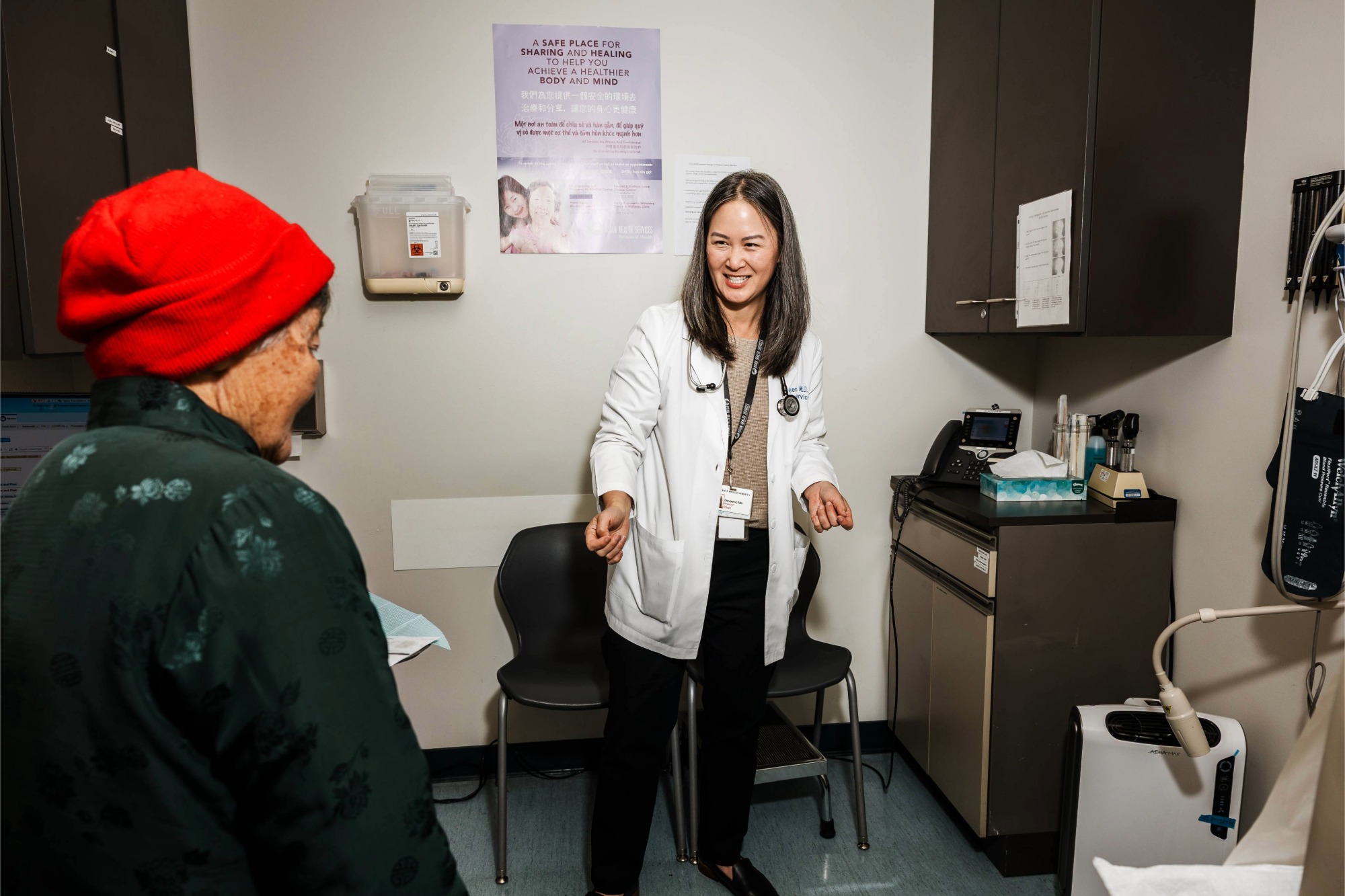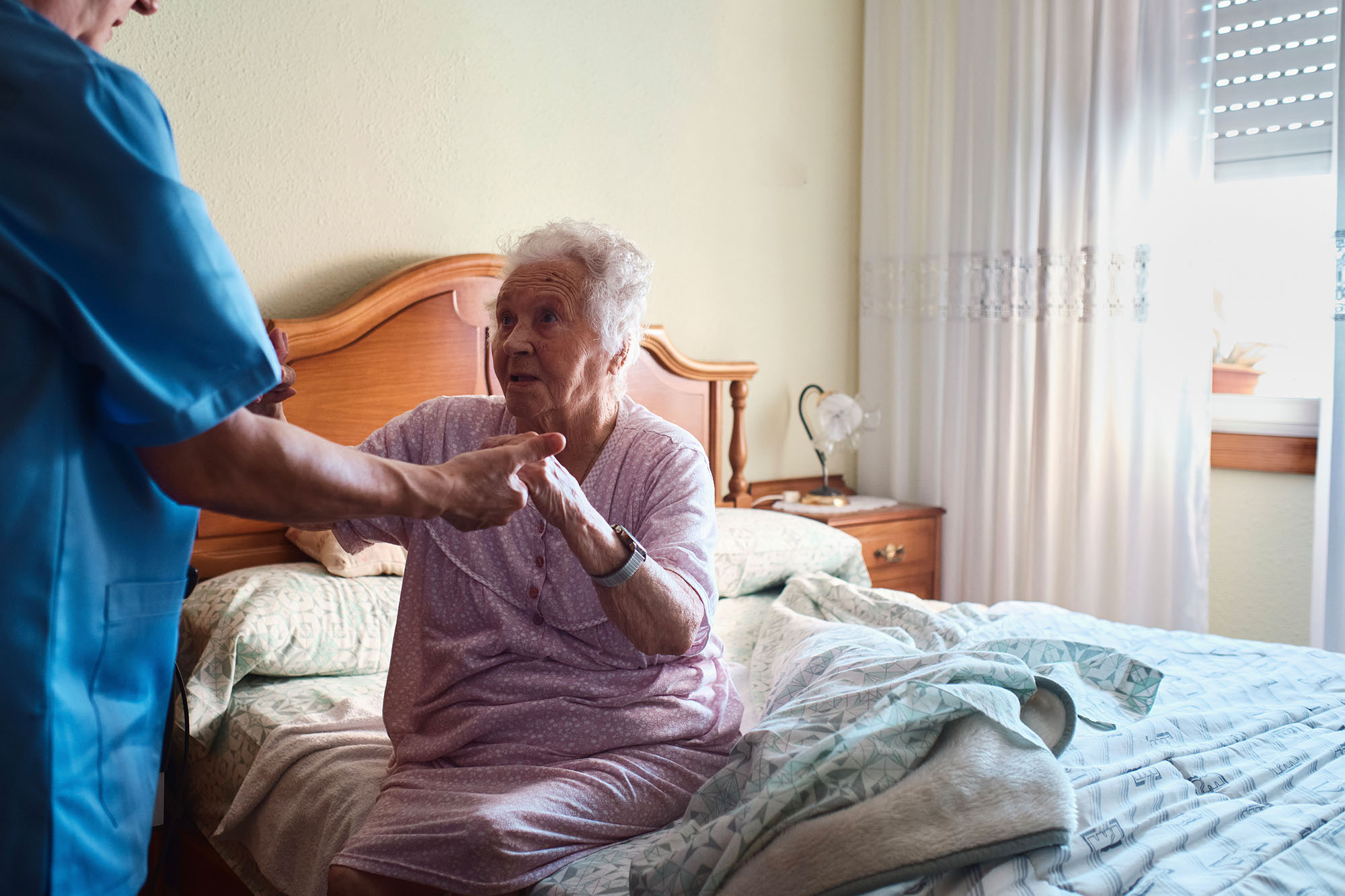C: Develop (or Optimize) MCP Program Operations
The Medi-Cal managed care provider (MCP) specifies an administrative home, assembles a staff team, and develops workflows for internal processes. The team creates cross-organization workflows in collaboration with palliative care providers and referring providers.
“Palliative care fits best within care management programs or similar programs, and not with a department like utilization management that is more focused on all MCP members or a specific care event.”
—Established program representative
In this section:
- C1: Administrative Home for the PC Program
- C2: MCP PC Program Team
- C3: MCP Processes That Support Timely Delivery of Services
- C4: MCP Processes That Support Easy Flow of Information and Reporting
- Progress in California
C1: Administrative Home for the PC Program
Accountability for the program should be integrated with other MCP programs that serve seriously ill members, to eliminate silos and improve care coordination within the MCP.
- Minimum: Designate an administrative home that connects palliative care with related programs (e.g., population health, case management, Enhanced Care Management, managed long-term services and supports).
- Enhancements: Include program staff in related programs’ meetings to support coordination and case finding, and to ensure members receive all beneficial services. Share team members and roles/responsibilities across these programs where practical.
Tools and Links
Palliative Care Program Fit with Related MCP Programs (PDF) (CHCF compilation of MCP resources).
C2: MCP PC Program Team
Include a medical director / clinical champion and an operations lead. Specific roles include referrals management and communication with referring providers, working with internal MCP peers, data management, and coordination with other network providers for services such as durable medical equipment (DME) and behavioral health services.
- Minimum: Designate clinical and operations leads, with alternates for coverage when the primary leads are unavailable.
- Enhancements: Monitor MCP program team capacity so staffing and roles evolve as the care model evolves and enrollment grows.
C3: MCP Processes That Support Timely Delivery of Services
The MCP manages referrals (both internal and external), service authorizations, and care coordination. The MCP provides for members’ related needs (e.g., DME, medications).
- Minimum: Create policies and processes for program entry, monitoring care delivery and member needs while enrolled, and program graduation. Specify expected turnaround times for processing initial referrals and authorizations for specific services and supports such as home health, medications, and DME.
- Enhancements: Establish expectations for rapid processing of referrals and authorizations, through process efficiencies or increased staff resources, to meet patients’ needs sooner. Establish an expectation for PC providers to work directly with other contracted providers including DME providers and mental health case managers, without all referrals and coordination passing through the MCP.
Tools and Links
Universal referral form (PDF) used by four Los Angeles MCPs (Coalition for Compassionate Care of California).
Standards and Processes for Coordination and Expedited Authorizations (PDF) (CHCF compilation of MCP resources).
C4: MCP Processes That Support Easy Flow of Information and Reporting
The MCP establishes clear expectations and processes for information sharing to ensure effective program operations, both within the MCP itself and between the MCP and PC providers.
- Minimum: Internal to the MCP, create procedures and workflows for communication and data sharing among the MCP’s own programs, for internal referrals between MCP programs and services, and to minimize confusing and redundant efforts. For PC providers, the MCP has policies and processes for data reporting by PC providers.
- Enhancements: The MCP regularly reviews lists of members served by multiple programs and ensures effective coordination. The MCP and PC providers collaborate to automate reporting from PC providers’ electronic records. The MCP reduces the number of steps and data platforms that PC providers must use to submit the information required, with the goals of eliminating duplicative data entry and maximizing the use of live data.
Progress in California
In a March 2021 survey by CHCF and the Coalition for Compassionate Care of California, half of responding PC provider organizations flagged “competition with other plan programs creates confusion and limits enrollment” as a barrier to delivering the best care possible, highlighting the need for coordination within the MCP and for clarity for external partners.
“Flexibility is important, once standards are established in the early stages of a partnership and trust develops. Now, either our MCP staff or PC provider staff can be the first person to contact a member, which is a big benefit.”
—Established program representative
Authors & Contributors
Hunter Gatewood
Hunter is a consultant and teacher in leadership and improvement with his company, Signal Key Consulting. His connection to palliative care stems from experience in social work case management with high-mortality populations, and more recently in serving palliative care providers in quality improvement and systems integration efforts.
Kathleen Kerr
Kathleen is a health care consultant in private practice in Northern California. Her work is focused on promoting the development of sustainable, quality palliative care programs, with particular emphasis on services that operate in rural areas and those that serve Medicaid enrollees.






